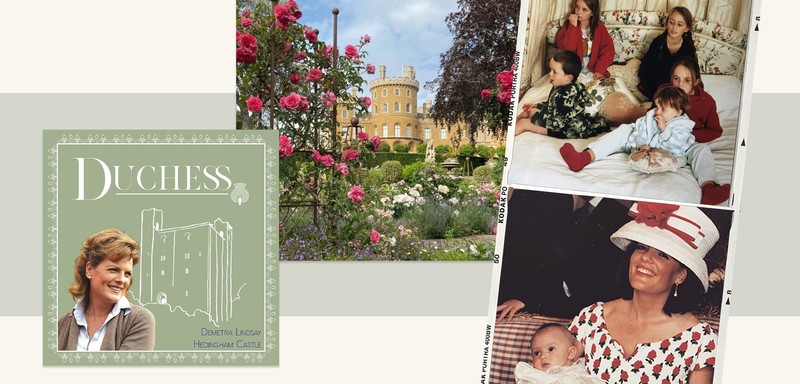
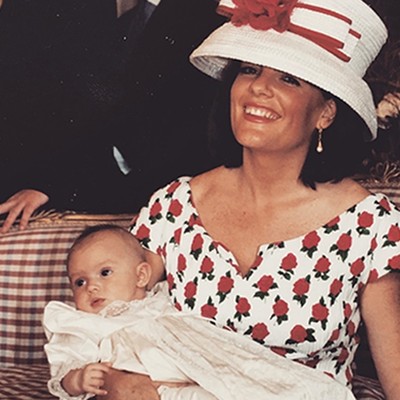
In Conversation With… Emma Manners, Duchess Of Rutland
I was born on the Welsh borders, where England meets Wales. Back then it was known as Radnorshire but it’s now Powys. I had two brothers and together with our mother and father, we grew up on a farm. So, I’m a farmer’s daughter, which not many people know. I’d help out with all sorts – whether it was the lambing or just handling the stock – and it gave me a real appreciation for the natural world and nature. It’s also what inspired my brother to start Radnor Hills Mineral Water, which still exists to this day.
The school I went to was in Malvern, but I was heavily dyslexic. When I was 16, I got a scholarship to the Guildhall School of Music & Drama to study opera, but my father was insistent I stay in school to finish my A Levels. I did and, when I was 18, I went straight to the Barbican to study to be an opera singer. I’d sung all my life in Wales, but I dropped out after a year because my voice simply wasn’t good enough. At that point my life took a bit of an about turn and I went to train to be a land agent instead. I completed two years, but I failed the taxation exam, so I left that behind too. About age 25 by this point, I decided to set up an interior design business with a partner.
Interior design was always a passion of mine. I love fabric, colour and working out how to use a space practically. The process feels quite immediate to me, too, unlike gardens for instance. Decorating and design can be quite a quick fix, and it’s ended up serving me well at Belvoir too. Actually, I’m known for travelling around with a Farrow & Ball paint chart in my bag at all times!
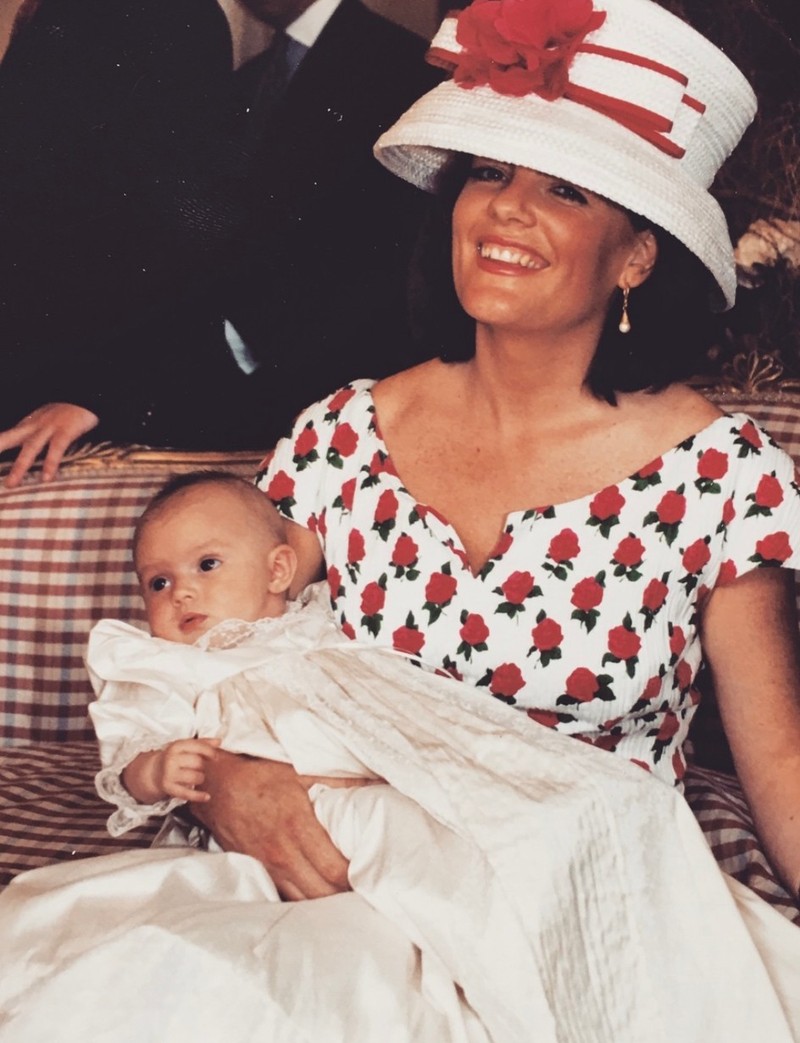
In 1990, I met David at a dinner party in London and we just connected. I had no idea who he was and vice versa, but we clicked. We were married within the next two years, and I’m often asked whether I ever thought about what marriage meant – specifically, in terms of the responsibility I would eventually be taking on. In truth, I didn’t really. David hadn’t inherited the title yet and all that felt quite a long way off. In fact, we spent around eight or nine years living in a house on the estate, which is where most of the children were born. We set up our first business from there selling garden conservatory furniture.
A big family was always something I’d hoped to have. I have five children now – Violet, Alice, Eliza, Charles and Hugo – but I lost a few along the way, too. When Violet was born, I remember thinking how perfect and immaculate she was, like a delicate flower – hence her name. I loved being a mother and bringing them all up on the estate. It was important to me that, like my own childhood, they all grew up with this appreciation of the outdoors and nature, so we encouraged them to be active and get involved with all sorts of sports and activities. In 2001, David and I took over responsibility for the Belvoir estate. We already had four of the children by then and suffice to say the job didn’t come with an instruction manual. You just had to learn as you went along – even down to which key opened which door! I remember thinking it would have been very useful to have a map just to be able to get around the building. It was a real learning curve in terms of getting used to all the layers of a stately home – the people and how everything worked. We knew we’d have to carve out our own way of doing things.
Initially, I tried to fix the small things. Taking over the running of a house the size of Belvoir can be very overwhelming, so I found it best to start small, inside and work my way out. I remember one of the earliest challenges just being access – how did I get the children in and out with a pram? The spiral staircase wasn’t exactly conducive to that. We also knew we wanted to turn all the heating over to biomass, and to fuel it with wood chippings from the estate. There were also about 1,200 lightbulbs that needed changing to be energy efficient. But it was easier to start with the practical things to make life a little bit more comfortable.
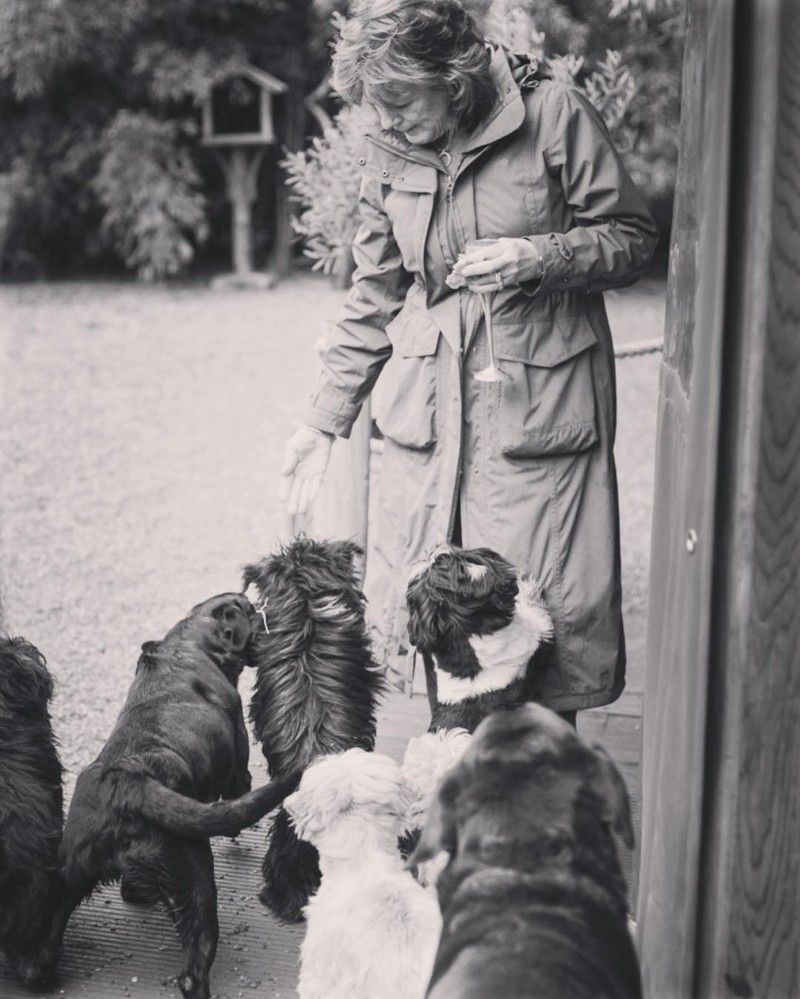
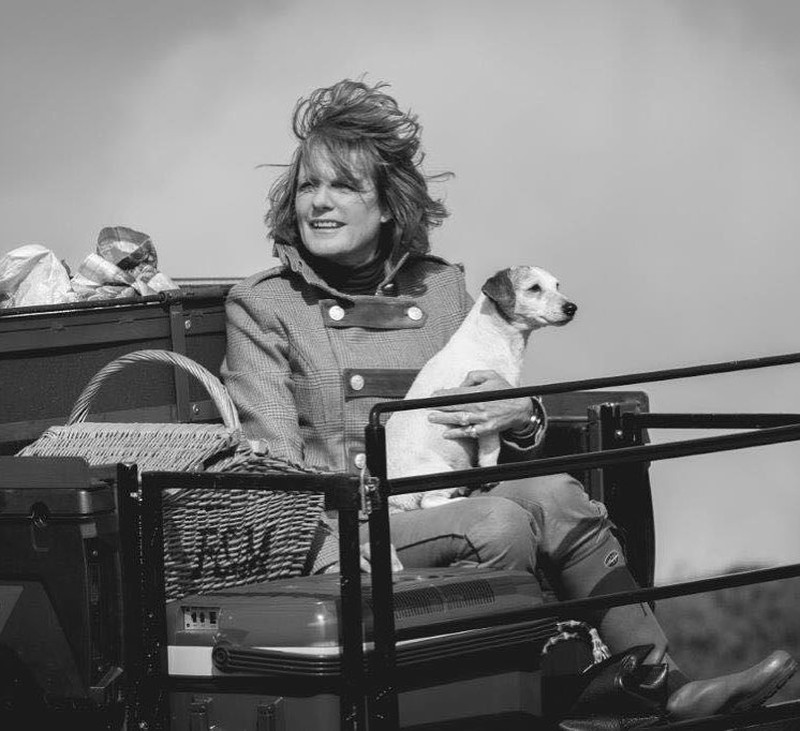
Financially, I knew events would also be key to keep things ticking over. I set about getting us a wedding licence and a separate game licence for the park. Nowadays, we also host corporate events and fairs, so over the years we’ve added numerous bathrooms and ensuites, conference rooms, projectors and break-out spaces. It’s about constantly evolving the building to make sure it’s fit for modern requirements but making sure it still looks beautiful at the same time.
Building the right team around you is one way to ease the financial burden. There’s always pressure in running an estate of this size – don’t get me wrong – but the right people will ensure things still feel achievable. Lockdown was also a great cleanser for us because we had time to look at everything really carefully and, although we sadly had to let some people go, it helped us streamline the operations and move forward.
I’ve been approached by numerous television companies over the years, too. They’re all very interested in Belvoir but, each time, it’s just been a question of looking at the project, thinking it through and working out whether it’s the right fit. Sometimes it’s documentary work, but plenty of film companies have also approached us – for 2009’s The Young Victoria, for instance, and recently The Crown, because Belvoir is such a look-alike for Windsor Castle. When the crews do come, I try my best to stay out of the way. I’m always the one peeking at them through the bushes or from behind pillars!
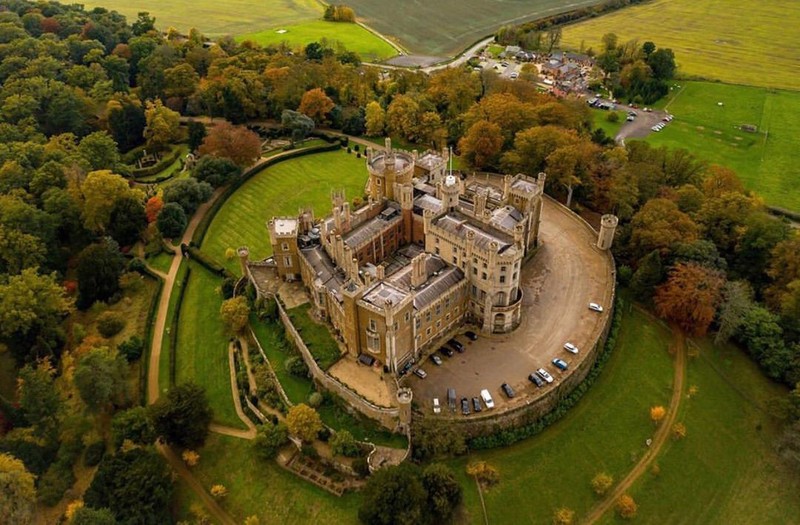
Even though David and I are separated, we’re still a very tight knit family. Simply put, we’re best friends. We catch up over lunch every day – he’s busy with his projects and I’m busy with mine, but I make sure to bring him up to speed with everything going on. It works for us, and it always will – we’re quite blessed in that way.
The idea for the podcast came entirely from my daughter Violet. She came back from LA, where she’d been at business school, and told me we should embark on a podcast which went behind the walls of homes like Belvoir and told the stories of the women who lived there. I think she’d overheard lots of fireside chats between myself and other women in the heritage world over the years, and she wanted to bring it to a wider audience. Podcasts were also becoming a really popular medium when she first had her lightbulb moment, so it felt new and exciting. She also knew all about One Fine Play, so everything really was Violet in the beginning. That said, I’ve loved getting to know all these other women with whom I have so much in common.
One of my favourite interviews has been with Lady Henrietta Spencer-Churchill. She’s supported nearly three generations of Marlborough dukes – her father, her brother and now George – and has a wonderful respect for continuation, which is essential if you want to go some way to preserving historic homes. I also loved interviewing Lady Tracy Northampton from Castle Ashby and the Duchess of Argyle is wonderful, too. Sophia Ashbrooke, the Countess of Mansfield at Scone Palace is also a joy.
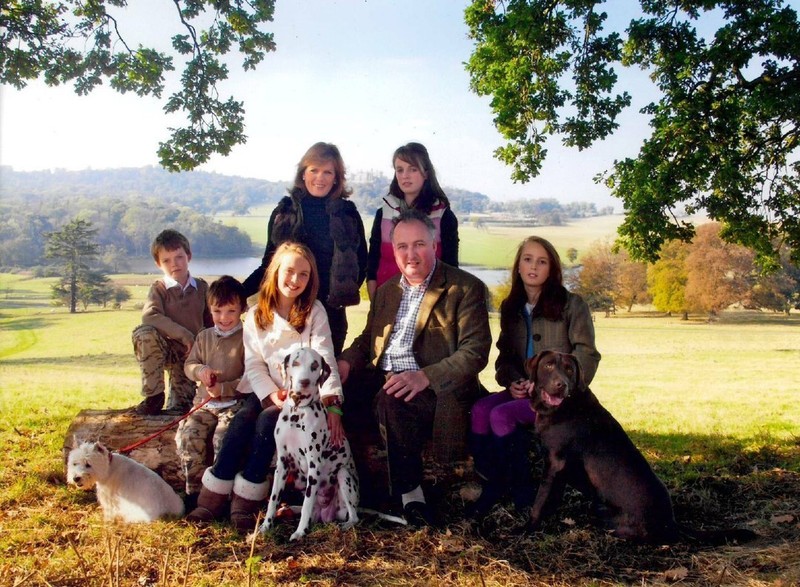
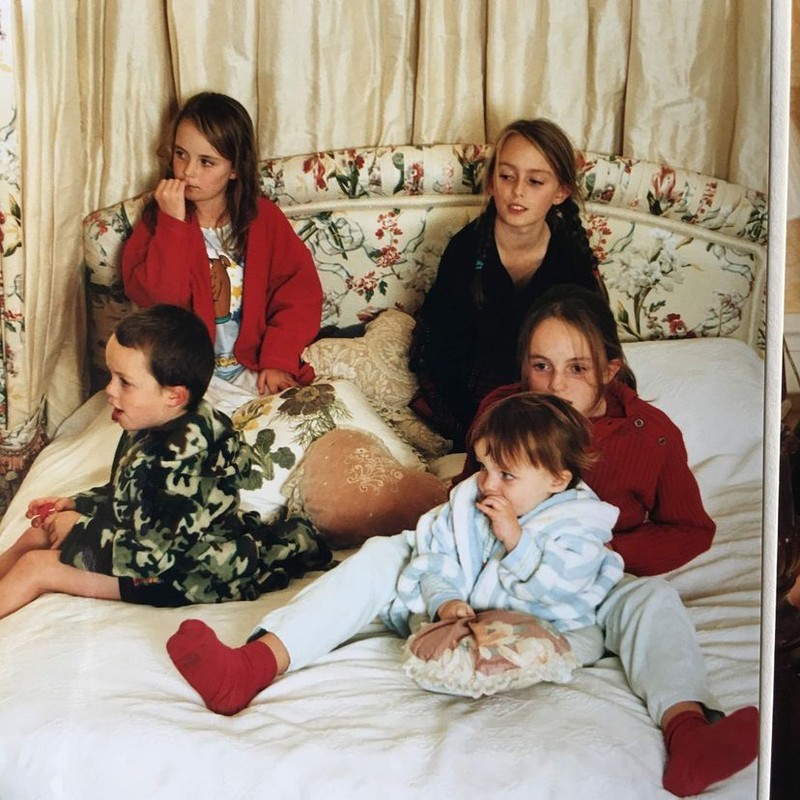
I learn something from every conversation – whether it’s where to get your signage made to who the best curtain makers are. All of us are having to navigate this world – and it’s nice to be able to do it together. I’ve really enjoyed finding out about their other business ventures, too. It’s often said that it’s important to run heritage and not let it run you – very wise words – so it’s been very inspiring to see some of these women pursue other passions outside of the estates.
The one thing I wish everyone knew about heritage was that there are 1,200 privately-owned homes across the British Isles that are lived in by real families – statistics show nearly two-thirds of people automatically believe any historic or stately home must be owned by the National Trust, but these buildings are still very much living, breathing homes. There’s a human story behind every one of these beautiful places.
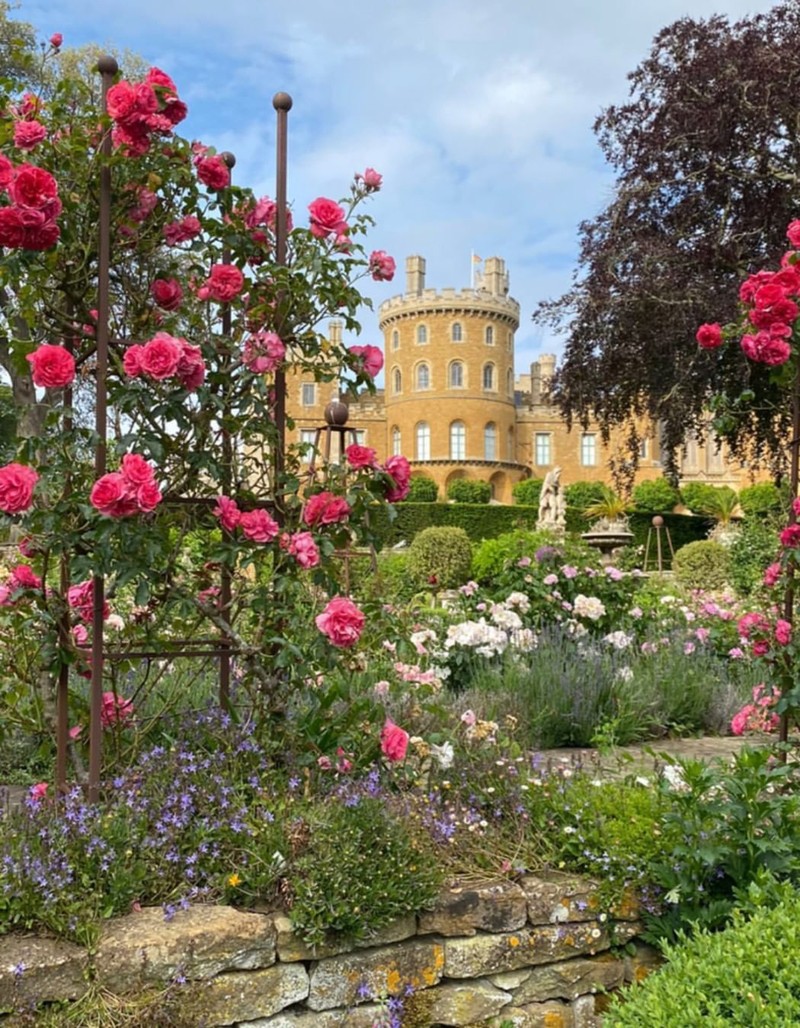
This year, I’m gearing up to publish a book about my life. The inspiration behind it is really the women who have influenced me along the way – the mothers, the daughters, the friends – and I’m not sure I’d have been able to pull those threads together without the podcast. In terms of future projects beyond that, I’ve learnt that it’s important to believe that what will come, will be. I don’t have any intention of slowing down, but I don’t have a fixed agenda either – it’s about letting the days unfold. Sometimes, having too many plans can make you feel quite bad, especially if they don’t go the way you expect. The only certainty for me is that life rarely goes in a straight line and accepting that really is half the battle. The details really are in the universe’s hands.
The Accidental Duchess: From Farmer's Daughter to Belvoir Castle will be published on 15th September 2022 by Pan Macmillan. You can pre-order a copy here. Visit TheDuchessPodcast.com to listen now.
DISCLAIMER: We endeavour to always credit the correct original source of every image we use. If you think a credit may be incorrect, please contact us at info@sheerluxe.com.

